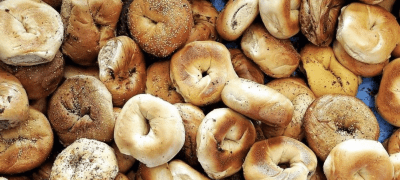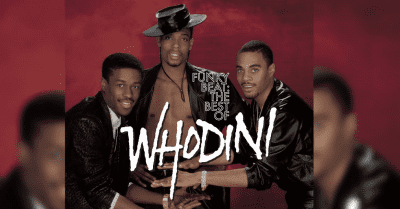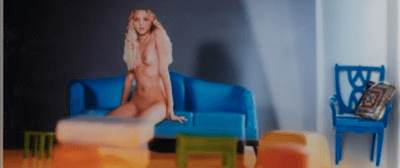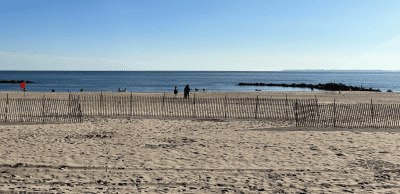Concept rendering of Felipe Baeza: Unruly Forms, presented by Public Art Fund. Image courtesy of Public Art Fund, NY.
Coming to a bus stop near you: The art of Felipe Baeza
In his series 'Unruly Forms,' Baeza creates human-like figures 'always in the process of becoming and unbecoming'
Sometimes there’s nothing like waiting for a bus to make you feel out of place, time and body. Now, a new series of mixed-media paintings at some 400 bus shelters across this city — as well as in Boston, Chicago and in three cities in Mexico — will evoke that liminal space for hundreds of thousands of commuters.
Beginning August 9, artist Felipe Baeza’s “Unruly Forms” collection will grace bus shelters and street furniture operated by outdoor advertising company JCDecaux in New York and beyond, making art accessible to weary travelers.
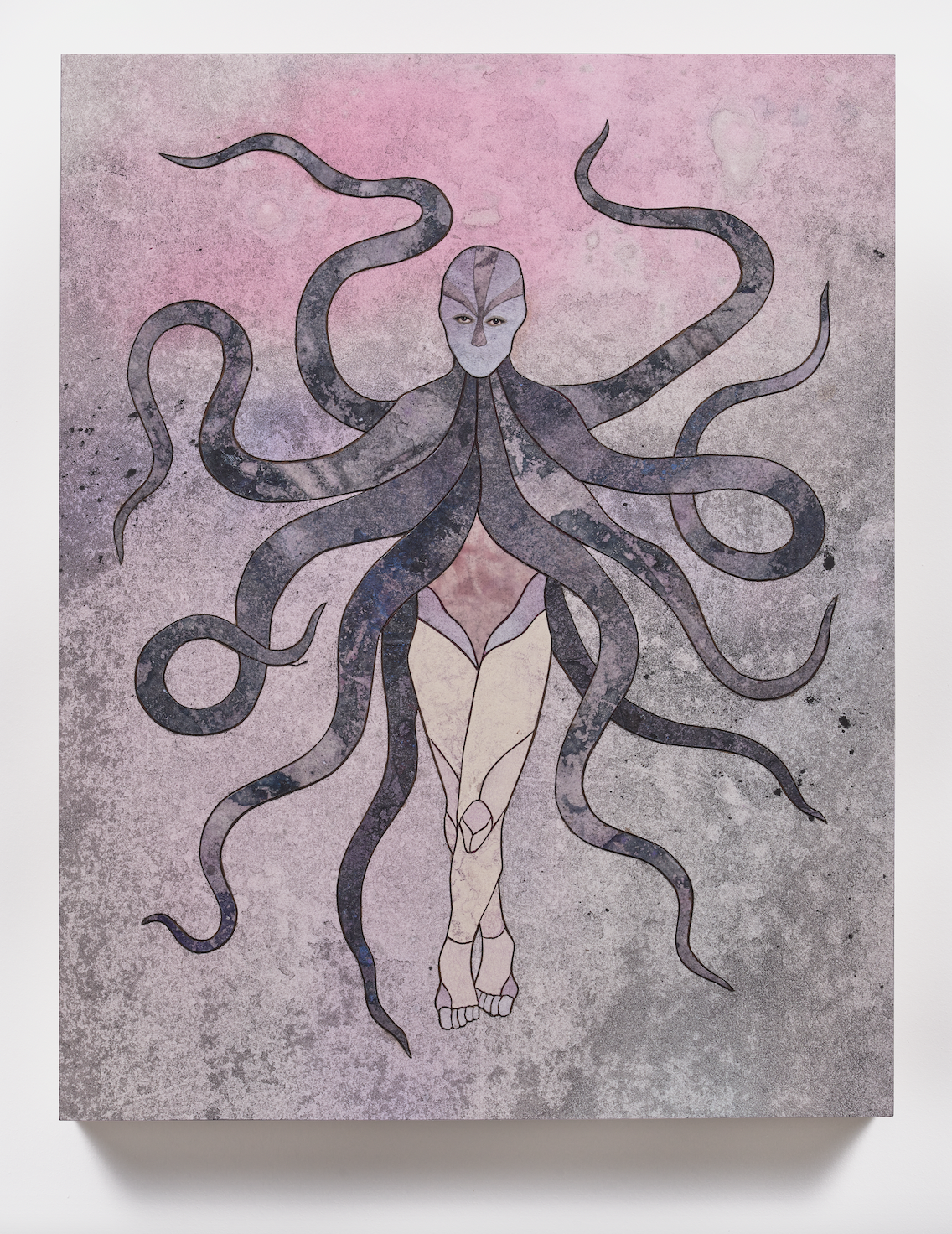
‘Unruly Forms 11,’ 2023 by Felipe Baeza (Courtesy Maureen Paley. Photo: Brad Farwell)
Sponsored by Public Art Fund, a non-profit organization devoted to making art accessible to people where they live or commute, “Unruly Forms,” or “fugitive bodies,” as Baeza sometimes refers to his creations, weaves elements of painting, collage and printmaking to create something both real and surreal — here and nowhere — that underscores the nature of in-betweenness. Here you will discover images that capture the essence of movement and transformation through themes of migration, displacement and queer identity.
The show takes its title from the allure that term, “unruly,” has for Baeza — and what it represents.
“I’m attracted to the word, what it means to live on your own terms, to live outside the norm,” explains Baeza, who was born in Mexico and has spent his life undocumented.
Baeza’s art primarily focuses on the human body in hybrid forms, part humanoid, part plant- or cephalopod-like. Each of the eight images that make up “Unruly Forms” appears forever caught in a state of flux, or, as Baeza’s puts it, “always in the process of becoming and unbecoming.” In the painting titled “to shape, shape self,” for example, a profuse number of arms, gesturing both up and down, stretch out from a spiky, fragmented body which itself seems to be sprouting roots.
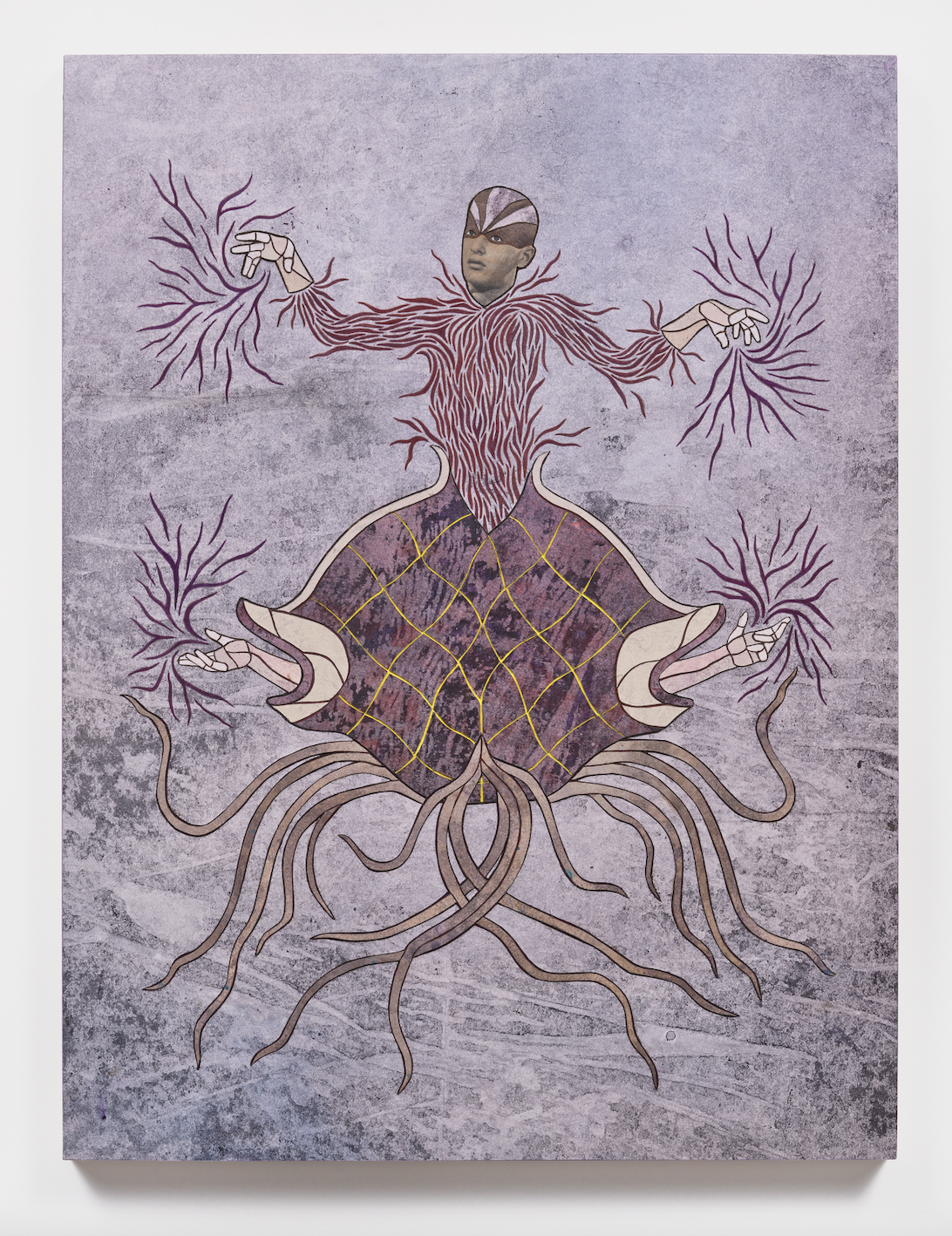

‘to shape, shape self’ by Felipe Baeza (Courtesy Maureen Paley, London. Photo: Brad Farwell)
In the titular “Unruly Forms” painting, a body appears to be morphing into a sea creature with a riot of large, octopus-like arms. In “Confined but still intoxicated with freedom,” the subject is poised on the brink of flight, teetering on the edge of liberation.
“I’m trying to explore real experiences. The fugitive is always running and escaping,” says Baeza.
“The figures are constantly in a state of becoming, not fully human,” says Public Art Fund’s artistic and executive director, Nicholas Baume, who says that the work touches on something universal.
“In one way or another, we all feel incomplete or may feel that we are less than, or different from, whatever way we sort of feel social or cultural expectations are,” he adds. “Our journeys through life are about becoming and growing and accepting who we are.”
Baeza, who lives and works in Brooklyn, arrived in America as an undocumented 8-year-old. Today, at 36, he remains undocumented. While he has DACA (Deferred Action for Childhood Arrivals) status, it does not provide a path to permanent residency or citizenship and must be renewed every two years. And, under DACA restrictions, to travel abroad he must apply for “advance parole.”
“I’ve been navigating this status since I came to this country,” he says. “I dream of other ways of looking at life.”
As both an undocumented and queer person, Baeza may seem easy to fit into certain boxes. But to look at his work through identity-tinted glasses would be missing out on the full scope of his creativity.
Born in Guanajuato, Mexico, and raised in Chicago, Baeza received his BFA from Cooper Union. He applied there because it was free and “my only path to higher education.” From there he was able to attend Yale University where he received his master’s degree in fine arts.
His work has been shown in exhibitions from Maureen Paley, a gallery in London, to Los Angeles’s The Mistake Room and the Fortnight Institute in New York. Last year, he was featured in the 59th Venice Biennale, and recently he completed a nine-month residency at the Getty Research Institute.
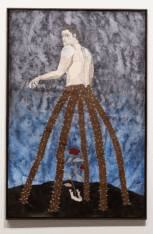

‘Emerging in Difference,’ 2022 Venice Biennale
“Unruly Forms” was organized and curated by Public Art Fund’s Baume, who first encountered Baeza’s art at the Venice Biennale 2022 exhibition, “The Milk of Dreams.” There, Baume was struck by the painting “Emerging in Difference.”
“I’m a gay man myself, and in that Venice series there’s one particular piece of a male torso, and instead of legs there are sort of roots of branches down into the earth, and they’re covered with thorns,” says Baume. “The figure has his back to the viewer, but his head is turning around and underneath the ground there is a single rose, flowering.”
The piece resonated, he says, because, “For me it had a powerful singularity, as I feel all of Baeza’s work does.”
Given Baeza’s strong, personal connections to Mexico (all of his family, except for his parents, are still living there), Public Art Fund, in partnership with JCDecaux, was able to extend “Unruly Forms” to Leon, Queretaro and Mexico City.
And thanks to receiving advance parole, which grants him the ability to travel, there is now a chance that the artist will be able to return to his roots and witness his project in his native country.
“It would,” he says, “be amazing.”
Unruly Forms will be on view from August 9 to November 19, 2023 as part of JCDecaux Bus Shelters Citywide throughout New York, Chicago, Boston in the United States, León, Querétaro in Mexico as well as digital kiosks and newsstands in Mexico City.
You might also like 

















